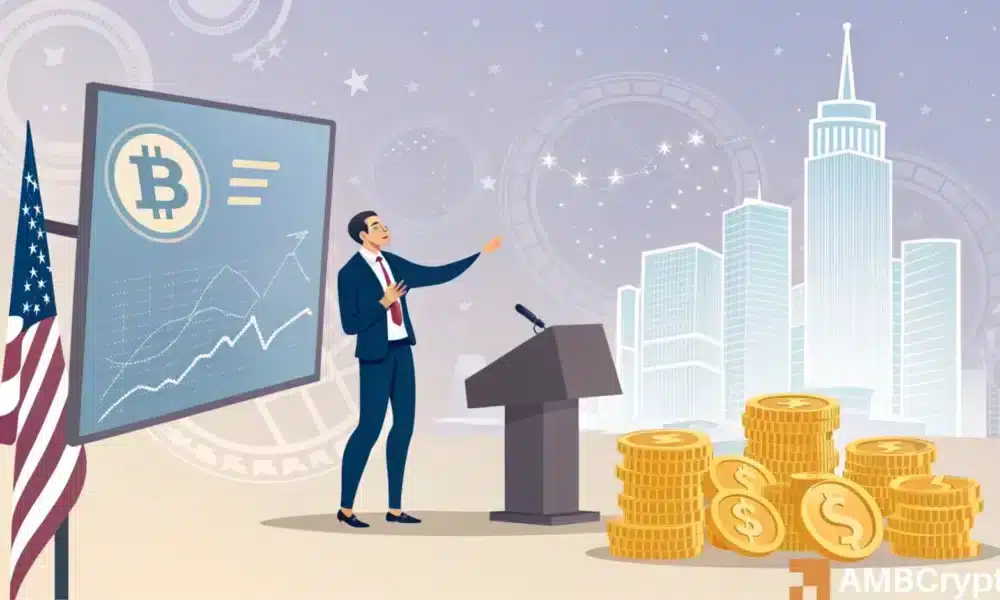Key Takeaways
U.S. Treasury Secretary Scott Bessent signaled a potential expansion of federal Bitcoin holdings, opening the door for the Strategic Bitcoin Reserve to grow beyond assets acquired through seizures.
United States’ Treasury Secretary is in the news today after he confirmed that the reserves, established under President Trump’s March Executive Order, may grow through strategic acquisitions as well. Originally, these reserves were envisioned to be backed by forfeited only Bitcoin.
He said,
“Bitcoin that has been finally forfeited to the federal government will be the foundation of the Strategic Bitcoin Reserve that President Trump established in his March Executive Order.”
He added,
“In addition, Treasury is committed to exploring budget-neutral pathways to acquire more Bitcoin to expand the reserve, and to execute on the President’s promise to make the United States the Bitcoin superpower of the world.”
That’s not all though as officials are also exploring budget-neutral strategies. These include reallocating resources or using forfeited assets, expanding the reserves without new congressional funding, and balancing national objectives with fiscal discipline.
Market experts believe this strategy might give the Strategic Bitcoin Reserve a solid foundation. It will also allow the U.S to act quickly on price swings and seize opportunities.
A timely coincidence?
Bessent’s reversal, coming less than a day after ruling out direct Bitcoin purchases, is a sign of how quickly U.S digital asset policy can shift. It’s worth pointing out, however, that he also reassured investors that acquisitions will be deliberate and aligned with economic goals.
Created under President Trump’s March Executive Order, the reserve began with $15–$20 billion in Bitcoin seized through law enforcement. Its latest plans are indicative of both the crypto’s dominance and the administration’s intent to anchor strategy to the most recognized cryptocurrency.
While it is currently Bitcoin-only, officials are weighing the inclusion of Ethereum [ETH], Solana [SOL], XRP, and Cardano [ADA] as part of a broader plan.
In fact, White House Crypto Advisor David Sacks confirmed that Bessent and Commerce Secretary Howard Lutnick are exploring ways to grow Bitcoin holdings, without taxpayer cost. This is expected to ensure that any expansion remains transparent, fiscally responsible, and strategically focused.
What is the rest of the world up to?
For its part, Bitcoin’s price eased to around $119,000 from $124,000, at press time, following Bessent’s policy-focused announcement. This can be seen as a sign of investor caution, especially as they await further developments.
Meanwhile, other countries are also increasingly eyeing BTC as a strategic reserve asset.
Indonesia, led by the Vice President’s office, is considering adding Bitcoin to diversify reserves, hedge against inflation, and reduce reliance on the U.S. dollar.
Brazil may soon follow suit, with its Chamber of Deputies set to debate a bill on creating a national Bitcoin reserve in a hearing slated for 20 August.







